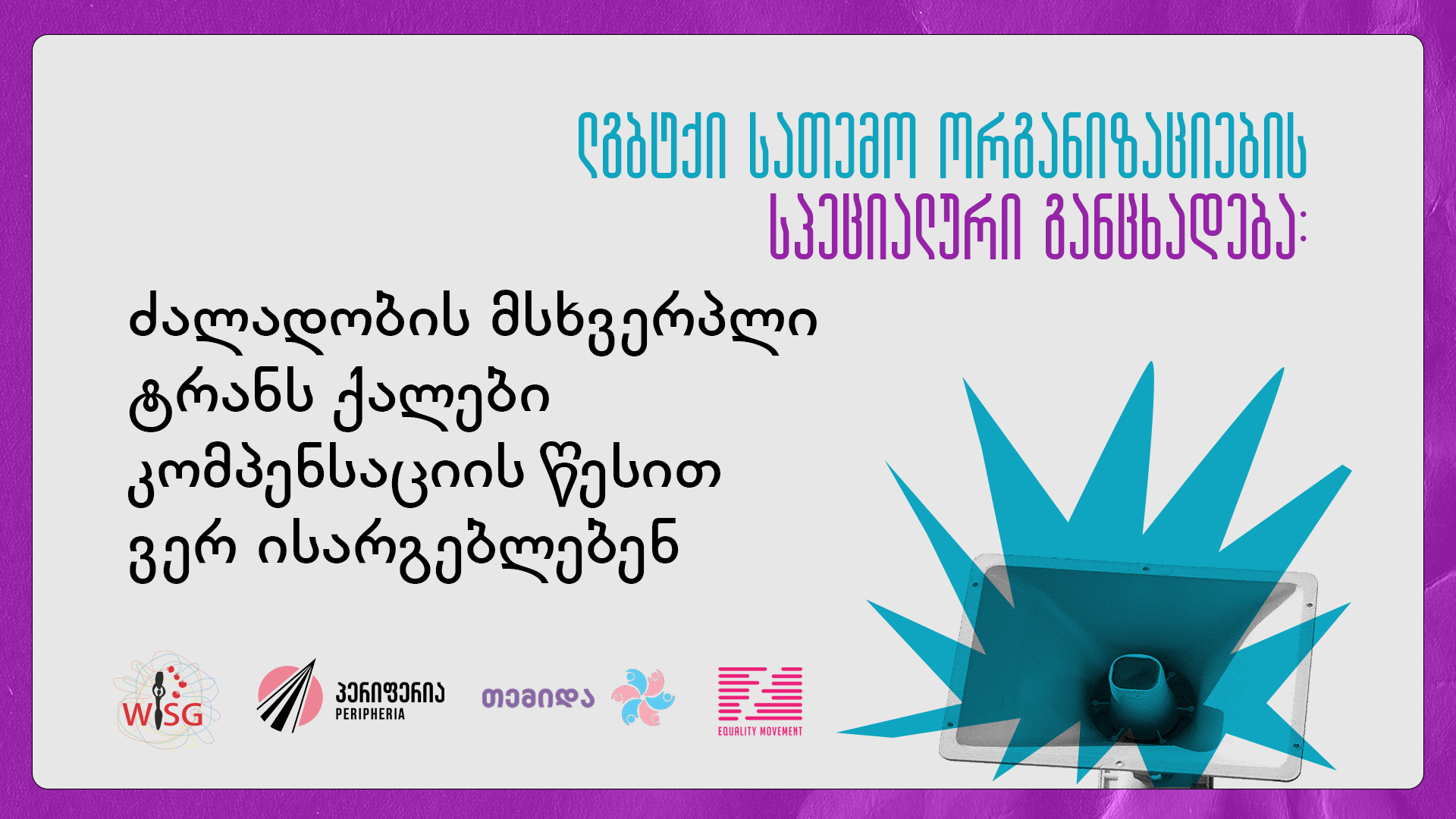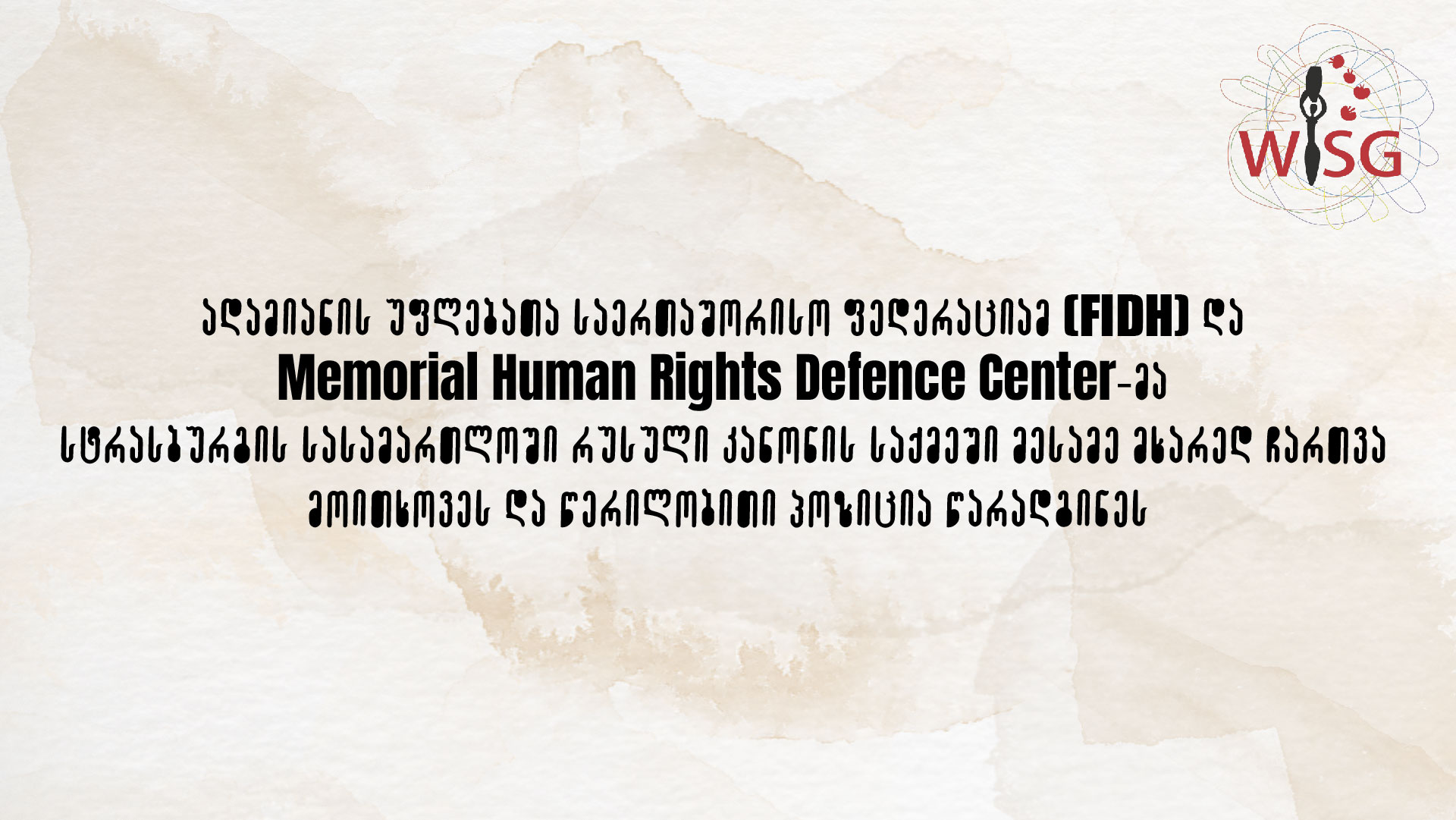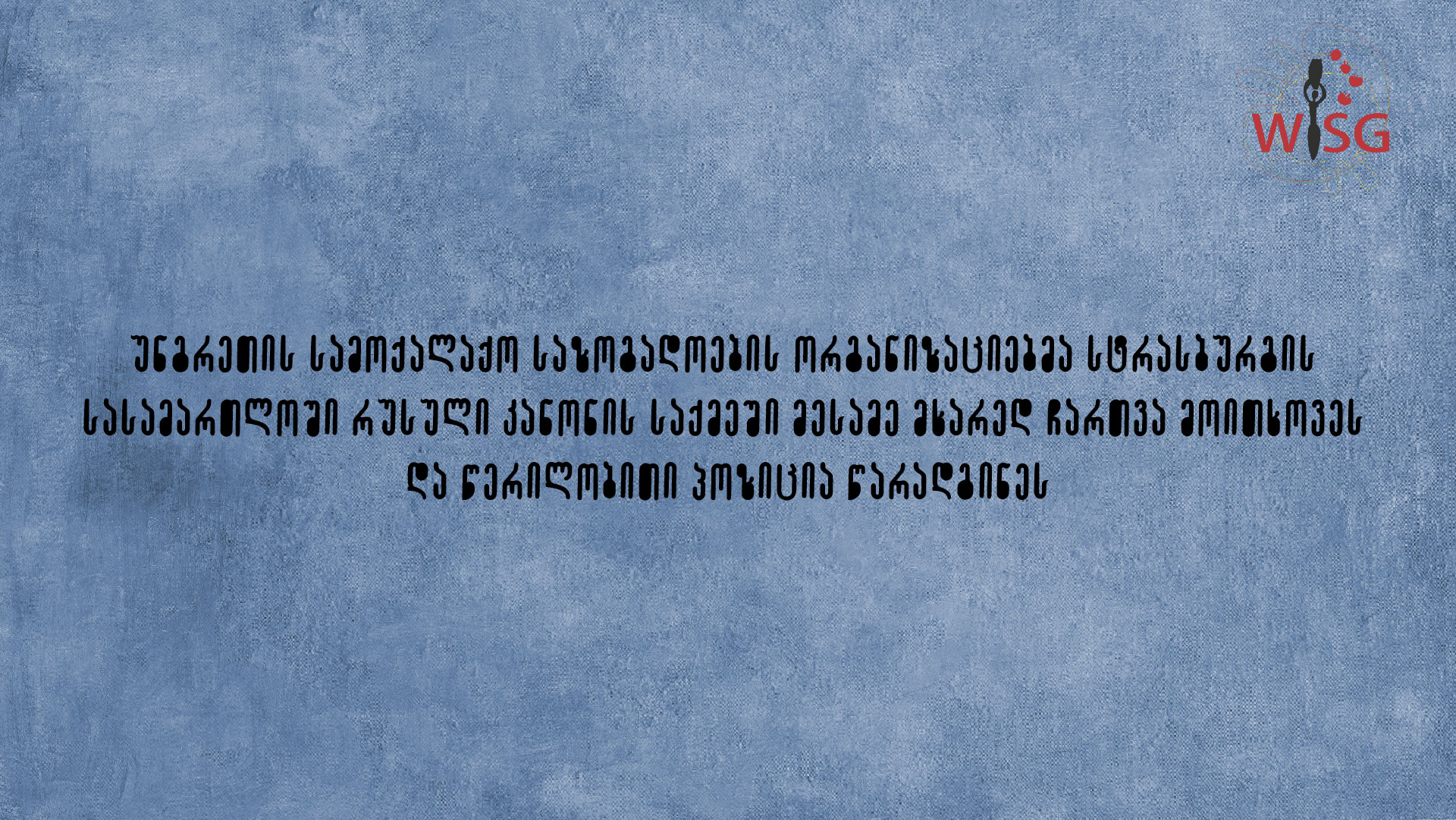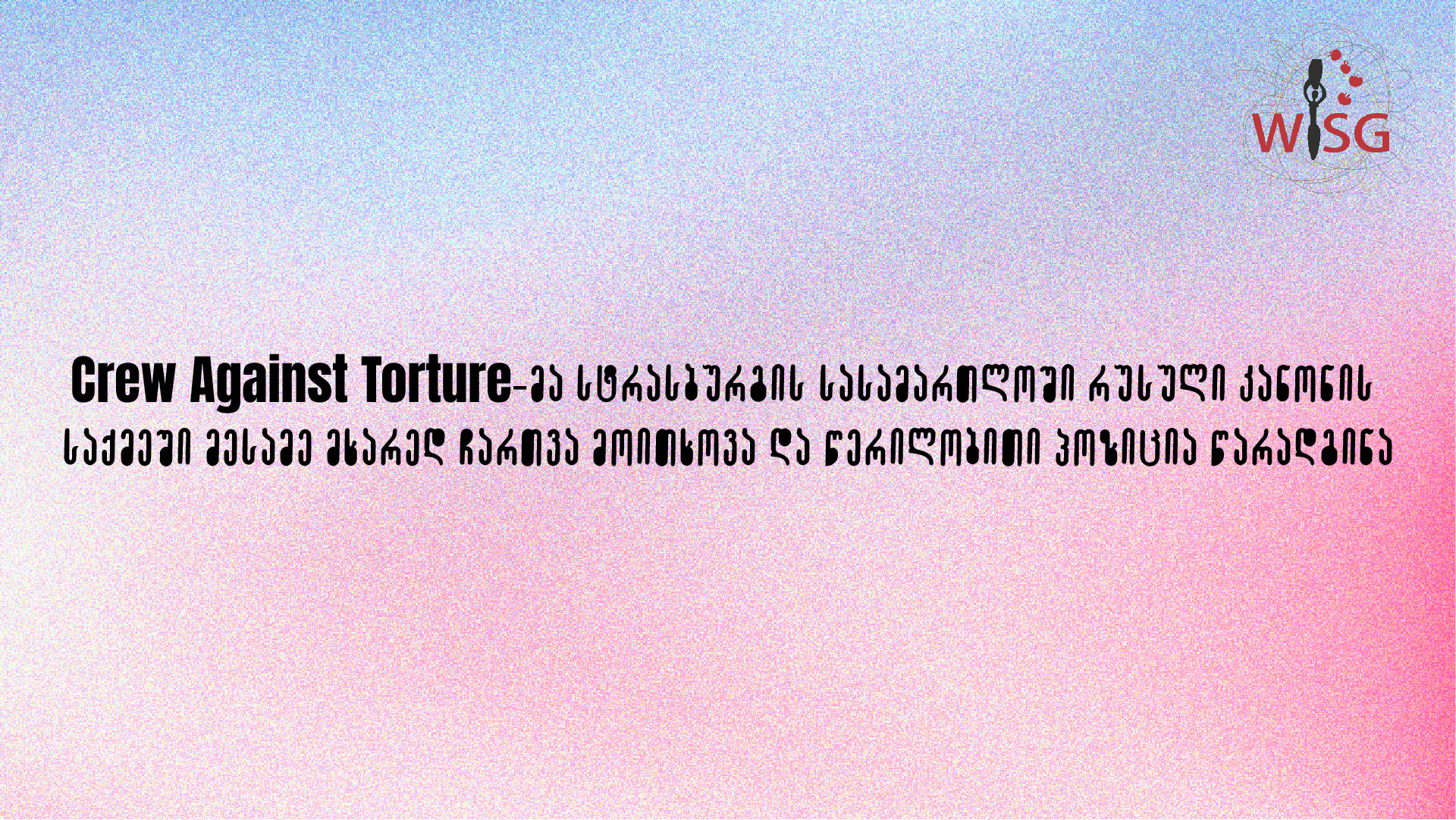We the LGBTQI community organisations respond to the adoption of the rule “On determining the amount of the state compensation for the victims of domestic violence and/or violence against women and setting regulations for the compensation issuance” by the Government of Georgia [1]
At this moment, transgender women who are victims of violence are unfortunately unable to benefit from this important provision on victim compensation, which the country adopted under Article 30 of the Istanbul Convention.
According to the rule approved by the government, a victim of violence against women is "a person who, according to the Criminal Procedure Legislation of Georgia, is recognized to be a victim of gender-based crime committed against a woman under the Criminal Procedure Code of Georgia, and who directly suffered health damage or who died as a result of gender-based crime committed against a woman."[2]
Unfortunately, such regulation and the fact that there is no mechanism for legal gender recognition based on self-determination for trans persons in Georgia excludes trans women who are victims of violence from benefiting from compensation.
Thus, we remind the state that despite the adoption of the compensation rule, it still does not comply with the agreement under Article 4 of the Istanbul Convention, according to which taking measures to protect the rights of victims should be ensured without discrimination based on any (including gender identity) grounds.
Besides, we critically note that for trans women it is also inaccessible to benefit from the administrative guarantees of the elimination of violence against women and protection and support of the victims of violence.[3]
In Georgia, the mechanism of legal gender recognition is not regulated by the law, nor is there an administrative procedure for it.
„According to established practice, a trans person who undergoes sex reassignment surgery and submits a respective health certificate to the Public Service Development Agency, easily changes the record of sex in their birth certificate, without any additional assessment.
The law limits the right to legal gender recognition for trans persons who do not wish to undergo sex-reassignment surgery, are not eligible for the surgery due to health conditions, or do not possess the financial means needed for this expensive medical procedure.” [4]
In 2017, due to the state's refusal to legally recognize their gender, three trans men appealed to the European Court of Human Rights, which will issue a decision on their cases on December 1, 2022.[5]
We the LGBTQI community organisations address:
To the Parliament of Georgia
- To elaborate and develop a legislative LGR mechanism based on self-determination with the active involvement of Georgia-based trans persons and community organisations;
To the Government of Georgia
– To provide support and supervision for the enforcement of the legislative and administrative procedures based on self-determination by setting up inter-sectoral collaboration;
To the Ministry of Justice
– To elaborate and establish a quick, transparent and accessible administrative procedures for legal gender recognition based on self-determination
Women’s Initiatives Supporting Group
Peripheria
Temida
Equality Movement
[1] Resolution No. 523 of the Government of Georgia of November 9, 2022 "On determining the amount of the state compensation for the victims of domestic violence and/or violence against women and setting regulations for the compensation issuance”. Available here (only in Georgian): https://matsne.gov.ge/ka/document/view/5611339?publication=0
[2] Ibid., sub-paragraph "A" of the first paragraph of Article 2.
[3] K. Bakhtadze "Legal Gender Recognition in Georgia - Policy Paper", WISG, 2022, p: 18. Available here: https://wisg.org/Data/docs/publications/policy-paper/WISG-LGR-in-Georgia-2022-EN.pdf
[4] Ibid., p. 14.
[5] “Anticipated Decision of the Strasbourg Court on Legal Gender Recognition Cases” (November 14, 2022, WISG) Available here (only in Georgian): https://wisg.org/ka/news/detail/360







